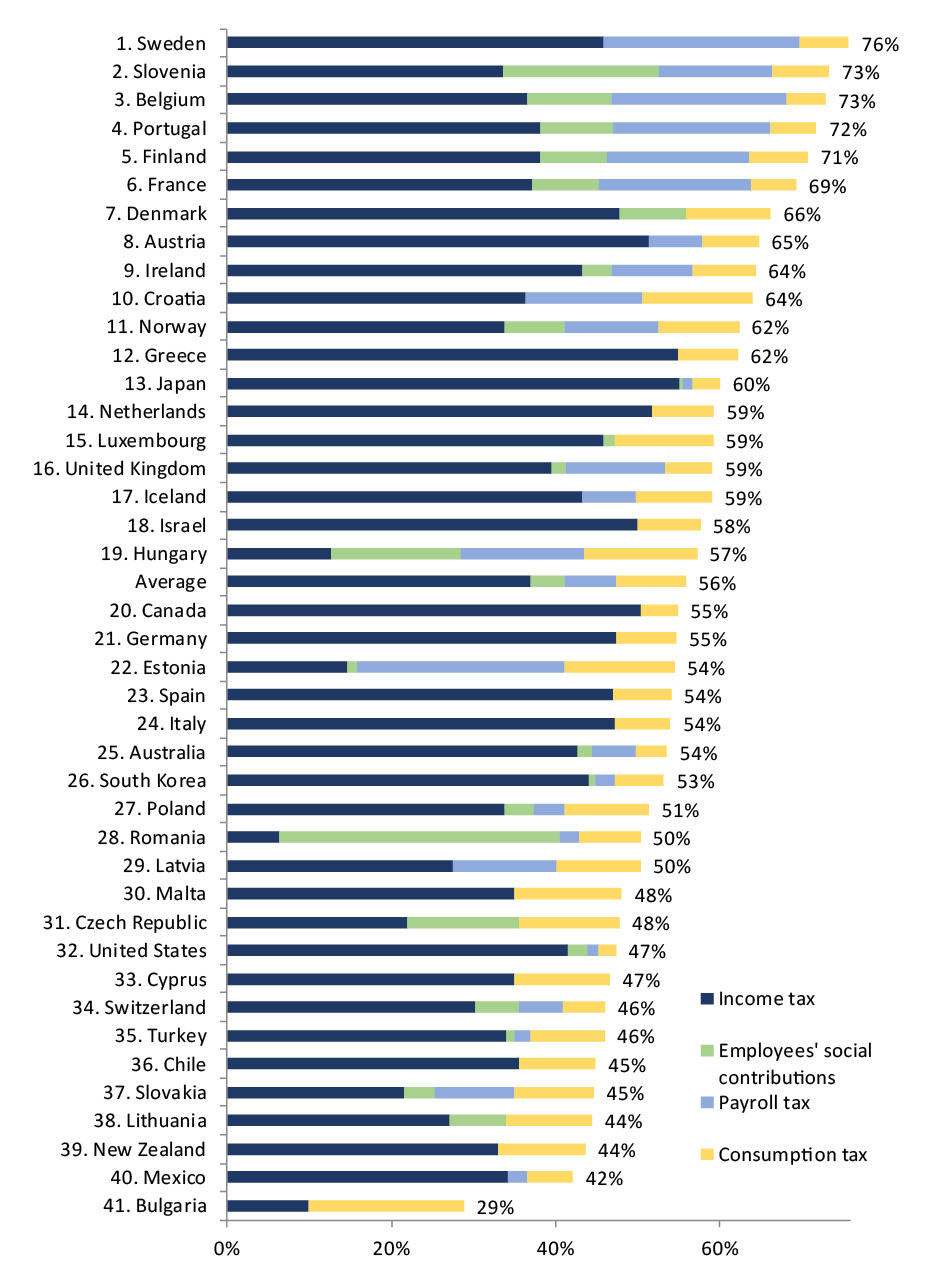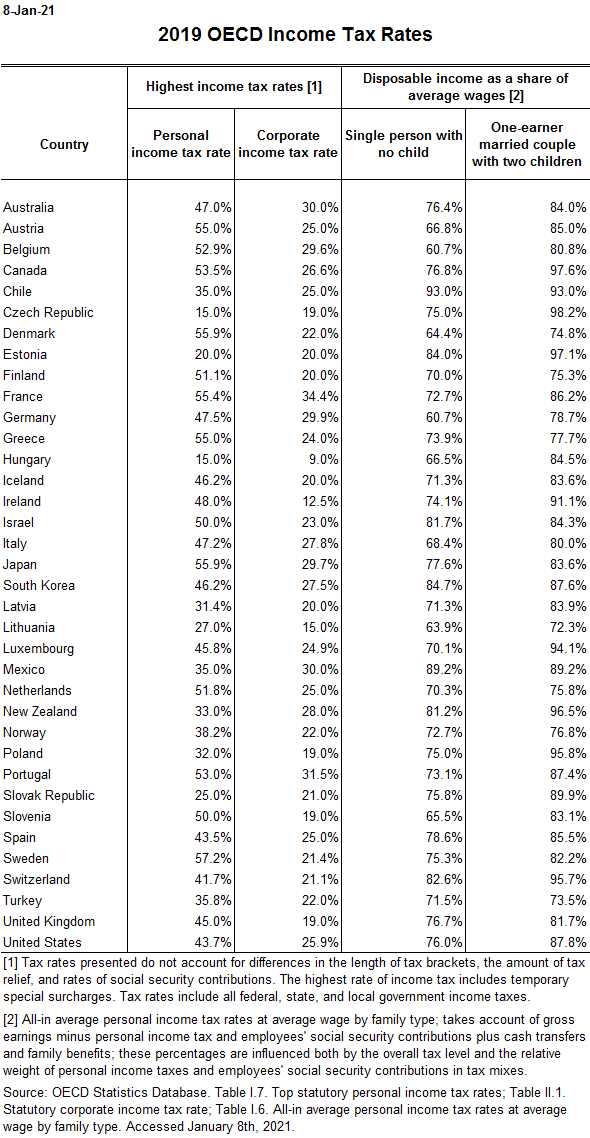Part
01
of one
Part
01
Taxes on the Rich, Part 2
Summary and Key Takeaways
- An important feature of tax systems is the statutory rate of taxation that applies to the highest bracket of incomes. This measure known as the top marginal rate of taxation corresponds to the tax rate that applies to the last dollar or portion of income earned by the rich. This means that marginal rates apply only to the portion of taxable income that exceeds the lower income threshold for that marginal rate.
- The top marginal tax rate is not the effective rate of taxation applied to the rich. The average or effective rate of taxation is defined as the ratio of total taxes paid by total income earned. This is the share of income that is paid in income taxes. The distinction between these two tax rates is important because for most people a portion of their income is taxed at one rate and the rest is taxed at another rate.
- Lower marginal rates do not directly imply lower economic incidence of taxation for the rich. However, reduction of top marginal income tax rates has been one of the contributors to lower effective tax rates for the rich. Progressive tax rates contribute to the reduction of post-tax income inequality at the top of the distribution through high marginal tax rates. It is a measure of the degree of redistribution in the tax system hence of great policy interest.
- Countries should be cautious about placing excessive tax burdens on the rich because in the short run high marginal tax rates induce tax avoidance and tax evasion.
- According to the World Inequality Report 2018, there was little or no personal income taxation at the start of the twentieth century in the United States, Japan, Germany and United Kingdom. Income tax was then introduced to partly finance the First World War and top marginal tax rates were raised to very high levels in the 1950s-1970s. The top marginal tax rates rose up to 94% and 98% in the United States and the United Kingdom respectively. The tax rates were then drastically reduced from 70% to 42% in the mid 2000s.
- Top marginal income tax increased in the United States, Japan, Germany and United Kingdom between 2010 and 2018. The United States increased it to income tax rate to 40% while Japan increased it to 55%. The United Kingdom increased its top income tax rate from 40% to 50% in 2010 with a reduction to 45% in 2013. On the other hand, Germany retained its tax rate at 45%.
Top Income Tax Rates In Rich Countries, 1900–2017
- A study by Timbro, Epicenter and Tax Foundation in 2019 states that it is important to consider effective marginal tax rates taking into account all taxes in order to determine the complete tax burden to the rich. They found out that countries differ in the types of taxes levied but most countries have a central income tax and a consumption tax such as Sales Tax and Value Added Tax. The study which compared top effective marginal tax rates on labor income in 41 OECD and EU countries concluded that there is nothing much in common in taxation of the rich.
Top Effective Marginal Tax Rates in 2019 and Their Composition
- Using OECD Statistics Database, Tax Policy Centre undertook an analysis of top personal and corporate income tax rates, and disposable income as a share of average wages.
Do The Wealthy In The US Pay As Much Taxes As The Wealthy in Japan, Germany, UK and Canada?
- In the US, the estimates of average or effective tax rate produced by Congressional Budget Office show that the federal tax system has been generally progressive with high income earners paying a higher share of their income in taxes. However, there were reductions in tax rates for the rich without comparable reductions for the poor between 1980 – 1990. Up until 2012, the tax rates for the richest 1% went down every year. The Federal taxes include individual income taxes, payroll taxes, corporate income taxes, and excise taxes.
- 2019 study by Timbro, Epicenter and Tax Foundation found out that the top effective marginal tax rate in United States was 47% compared to 60% in Japan, 55% in Germany, 59% in United Kingdom and 55% in Canada. The analysis includes income tax, employees' social contributions, payroll tax and consumption tax. Top effective marginal tax rate is the total tax paid on the last dollar earned by a high-income worker taking into account social security contributions and consumption taxes in addition to income taxes.
- According to the 2019 OECD Income Tax Rates, the personal income tax rate in United States was 43.7% compared to 55.9% in Japan, 47.5% in Germany, 45% in United Kingdom and 53.5% in Canada. On the other hand, the corporate income tax rate in United States was 25.9% compared to 29.7% in Japan, 29.9% in Germany, 19.0% in United Kingdom and 26.6% in Canada. The tax rates include all federal, state and local government income taxes.


